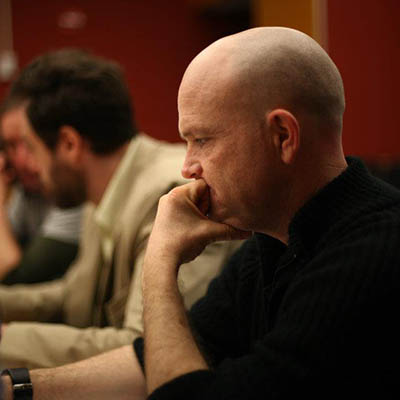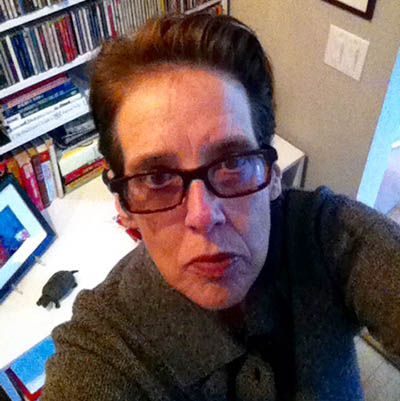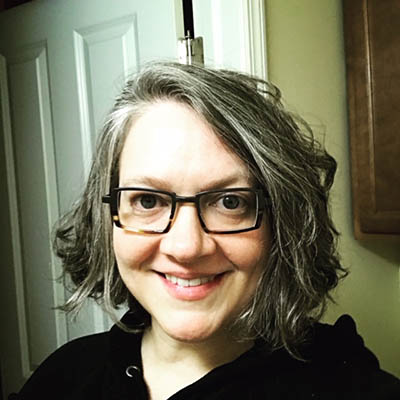Graduate Program Spotlight: Low-Residency M.F.A. in Screenwriting & Playwriting

"The M.F.A. is a launchpad for your career. You will have the necessary tools to continue to evolve on your creative path. This program teaches craft, voice, character development, dramatic structures and allows you to explore myriad avenues to grow as an artist."
What makes Point Park’s low-residency M.F.A. in screenwriting & playwriting program distinctive?
Point Park's low-residency M.F.A. in screenwriting & playwriting program is distinctive because it was always conceived as a multi-genre program.
The program started with the goal of preparing dramatists to be as flexible as possible. Not just flexible to pursue the most lucrative options possible, but flexible so that everyone graduating can pursue any idea and match it to the medium or platform that works best for it.
Our faculty works perfectly with this philosophy — Elise D'Haene, Ph.D., has a deep professional history in TV, film and fiction. She has an array of amazing tools to help writers execute their vision.
Molly Rice, M.F.A., is our main playwriting professor, and she has a way of pushing our students to explore their unique voice as writers.
Our program and the writers who teach it aren't in individual silos — we work together to help all the students find what they're looking for as artists and writers.
How will this program make me career-ready?
By the end of the M.F.A. program you will have a portfolio of plays and screenplays that will enable you to begin pursuing your chosen path.
After two years creating work you will leave with more confidence in your ability to finish your play, TV pilot and TV bible, feature screenplay, podcast, etc.
The M.F.A. is a launchpad for your career. You will have the necessary tools to continue to evolve on your creative path. This program teaches craft, voice, character development, dramatic structures and allows you to explore myriad avenues to grow as an artist.
You will have learned how to write a play, a feature film, a television series and more. You will know what it takes (rewriting!) to fully develop the stories you want to tell. And, you will discover those stories that only you can tell. The curriculum is structured as building blocks that help you to construct — course by course — a vibrant, expanding and rigorous creative process.
How do you incorporate your professional experience into the classes you teach?
As a a writer of diverse types of plays (site-specific, devised, community-engaged, musicals), a musician, and the artistic director of RealTime Interventions, I’ve accrued a broad range of experience that informs me in working with writers to develop their voices.
In our group residencies, I teach seminars in self-production, generating new material and new ways to approach narrative structure; but in my courses I strive to create unique learning paths for each student.
In playwriting class, writers build customized reading/seeing/doing lists as research for their theatre projects that combine not only plays and performance theory, but pop culture, music, visual arts, pulp fiction, old maps, archived online discussions and other ephemera that may uniquely inform or inspire their work.
My goal is to help writers abandon themselves to their own creativity, to better access the always-inventive subconscious.
What makes screenwriting & playwriting a resilient career field, even during challenging times like the current COVID-19 pandemic?
It’s obviously a tough time for arts that depend on human beings interacting in shared space for their performance, and in the case of theatre, for their consumption. And it’ll be tough for a while — in our field and in others. But people are eternally hungry for stories; we rely on them for hope, relief and comfort. How many of us have been looking to film, TV, webisodes and other online content to help us survive the Covid crisis?
A multi-genre writing program is a great way for writers to prepare for whatever the future brings in entertainment. Western theatre alone, much less world theatre, has survived plagues, religious censure, the rise and fall of empires. And the history of dramatic writing is marked not only by this resilience but its transformation through technology and expansion of storytelling platforms.




